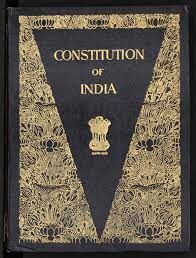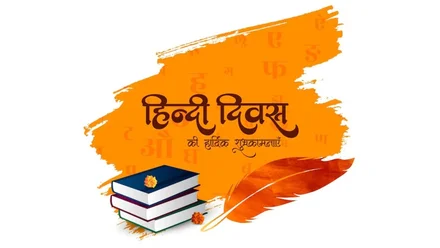Embracing Equality: The Imperative for a Uniform Civil Code (UCC) in a Pluralistic Society
Embracing Equality: The Imperative for a Uniform Civil Code (UCC) in a Pluralistic Society
Introduction:
In a diverse and multicultural society like India, the implementation of a Uniform Civil Code (UCC) has been a topic of ongoing debate and discussion. The UCC refers to a common set of laws governing personal matters, including marriage, divorce, inheritance, adoption, and more, that would replace the existing religiously-based personal laws. This article delves into the need for a UCC in India, exploring its potential benefits, challenges, and the path toward a more equitable and inclusive society.
Ensuring Equality:
One of the primary arguments in favor of a UCC is the promotion of gender equality and women’s rights. Personal laws in many religious communities contain provisions that discriminate against women, particularly concerning marriage, divorce, alimony, and inheritance. By implementing a UCC, India can guarantee equal rights and protection for all citizens, irrespective of their religious background, and create a more just and inclusive society.
Fostering National Integration:
A UCC can play a significant role in fostering national integration and societal cohesion. Customary practices and personal laws based on religion can often lead to divisions and fragmentations within society. By replacing these diverse legal frameworks with a common code, India can bridge the gaps that exist between religious communities and promote a sense of unity and shared identity among citizens.
Principles of Secularism:
Secularism lies at the core of India’s democratic fabric. A UCC aligns with the secular principles enshrined in the Constitution, ensuring that the state remains neutral in matters of religion while safeguarding the rights and interests of individuals belonging to all faiths. It upholds the principle that every citizen should be subject to the same laws, irrespective of their religious beliefs, fostering a spirit of equality and fairness.
Preserving Cultural Diversity:
Opponents of a UCC argue that personal laws are reflective of diverse cultural and religious practices. They emphasize the need to respect and preserve this cultural diversity. However, it is essential to strike a balance between maintaining cultural autonomy and upholding the principles of equality and justice for all. Implementing a UCC can be done in a manner that respects cultural sensitivities while addressing any discriminatory practices enshrined in existing personal laws.
Challenges and the Path Forward:
Navigating the journey toward a UCC is not without challenges. Sensitivity to religious sentiments, engaging in constructive dialogues with all stakeholders, and ensuring that all voices are heard are crucial elements in this process. Any implementation of a UCC should be based on robust research, comprehensive consultation, and the exploration of successful international models that have effectively balanced personal freedoms with the principles of equality and justice.
The section on Potential Benefits of a Uniform Civil Code:
Promoting Social Justice:
A UCC has the potential to bring significant social justice reforms by addressing various issues prevalent in personal laws. For instance, it can effectively combat practices such as triple talaq, which has been a matter of concern for many Muslim women. By providing a uniform legal framework, a UCC can ensure that divorce proceedings are fair and just for all parties involved, regardless of their religious background.
Streamlining Legal Processes:
Currently, the existence of multiple personal laws based on religious beliefs leads to complex and often conflicting legal procedures. With a UCC in place, legal processes related to matters such as marriage, divorce, and inheritance would become streamlined, efficient, and less prone to ambiguity. This would save individuals time, money, and unnecessary legal battles.
Ensuring Individual Autonomy and Freedom:
A UCC empowers individuals to exercise their rights and make choices based on their convictions, rather than being subjected to prescriptive laws based on their religious identity. It allows citizens to freely choose their life partners, pursue divorce when necessary, and make decisions regarding inheritance without undue restrictions imposed by religious doctrines.
Creating a Common National Identity:
By adopting a UCC, India can foster a shared sense of national identity, transcending religious boundaries and promoting unity among its citizens. It sends a powerful message that all individuals, irrespective of their faith, are equal before the law. This common legal framework would serve as a unifying factor, reinforcing national integration and strengthening the secular fabric of the nation.
The section on Addressing Concerns and Preserving Cultural Diversity:
Respecting Cultural Pluralism:
Critics argue that implementing a UCC might undermine the diversity of India’s cultural landscape. However, it is essential to recognize that a UCC can be formulated in a way that respects and accommodates diverse cultural practices, customs, and traditions while ensuring a baseline of equality and justice. The legislation can incorporate provisions that allow for cultural adaptations within the framework of fundamental rights.
Comprehensive Consultation and Dialogue:
To ensure that the concerns of various religious communities are acknowledged and addressed, it is crucial to engage in comprehensive consultation and dialogue with all stakeholders. By actively involving religious leaders, community representatives, and legal experts, a UCC can be shaped to honor cultural diversity while guaranteeing equal rights and social justice.
Conclusion:
The need for a Uniform Civil Code in India stems from the principles of equality, social justice, and secularism. It offers numerous benefits, including gender equality, streamlined legal processes, and the promotion of a common national identity. By respectfully addressing concerns related to cultural diversity through consultation and dialogue, a UCC can strike a balance between preserving cultural autonomy and ensuring equal rights for all citizens. As India progresses toward a more inclusive society, the adoption of a well-crafted Uniform Civil Code becomes a potential milestone in building a fair and harmonious nation.
Embracing Equality: The Imperative for a Uniform Civil Code (UCC) in a Pluralistic Society
#UniformCivilCode #EqualityForAll #SecularIndia #SocialJustice #CulturalDiversity #UCCDebate #LegalReforms #GenderEquality #NationalIntegration #ReligiousPluralism #InclusiveSociety #HumanRights #ConstitutionalPrinciples








